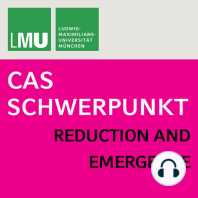44 min listen

The Formation of Epistemic Networks
FromCenter for Advanced Studies (CAS) Research Focus Reduction and Emergence (LMU)
The Formation of Epistemic Networks
FromCenter for Advanced Studies (CAS) Research Focus Reduction and Emergence (LMU)
ratings:
Length:
49 minutes
Released:
Dec 12, 2014
Format:
Podcast episode
Description
One important area of study for social epistemology is the social structure epistemic groups -- who communicates their knowledge with whom? Significant research has been done on better and worse communication networks, but less has been done on how a group comes to have one network or another. In this talk, I will present a number of results (some recent) from economics and philosophy about how individuals choose with whom to communicate. Understanding how individuals decide where to gain information can help us to design institutions that lead to epistemically more reliable groups. | Center for Advanced Studies & Munich Center for Mathematical Philosophy: 12.12.2014 | Speaker: Kevin Zollmann
Released:
Dec 12, 2014
Format:
Podcast episode
Titles in the series (25)
Reduction and Emergence in Physics: Research Focus Reduction and Emergence by Center for Advanced Studies (CAS) Research Focus Reduction and Emergence (LMU)